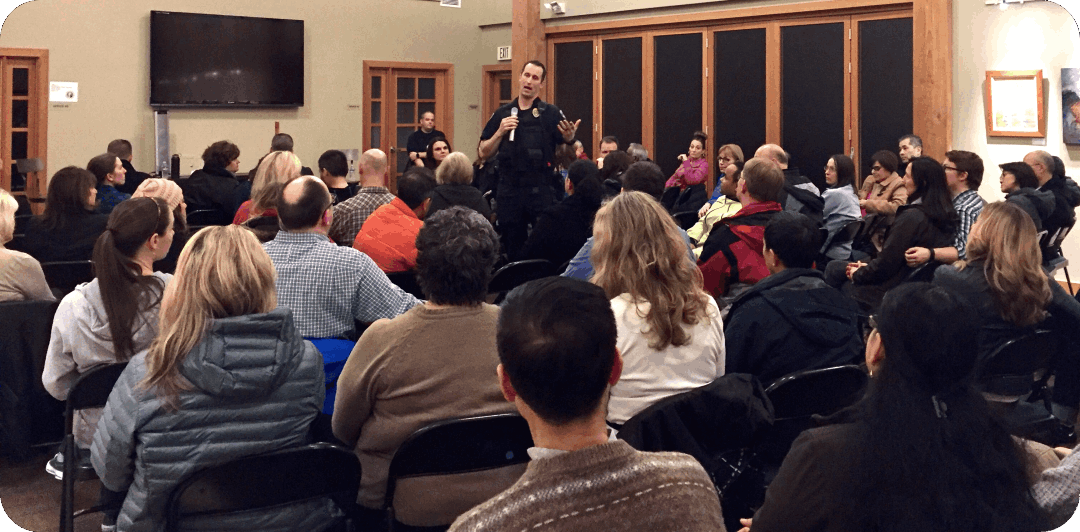
Support the Social/Community Crisis Management Process

refers to those aspects of a community that significantly influence the quality of community life and the general satisfaction that community members have about the state of their community (key contributors include education, health care, political process, transportation infrastructure, state of the economy, social relations etc.)
refers to the relations between (1) particular community groups, and/or (2) between the community as a whole and particular community groups
refers to activities that constructively protect, maintain and enhance key contributors to the quality of community life, including community relations (in accordance with the ethical framework that a society uses to govern its affairs)

The general purpose of this process is to:
(1) provide a supportive and managed process for expressing perspectives and experiences of what is generally and reasonably considered to be an existing or impending social/community crisis (e.g. a public expression/engagement session about the growing impact of a recent and significant influx of illegal drugs)
(2) provide key crisis stakeholders/decision makers and community members with the opportunity for constructive and expedited engagement that maximizes the potential for rapid mutual awareness, learning, and action within crisis conditions (lowers the potential for destructive behavior) (e.g. conducting a public expression/engagement session in response to recent gun violence that some community members perceive as an act of prejudice)
(3) provide avenues of expression and engagement that compliment and prevent the official public deliberation and decision making process from becoming overwhelmed and non-constructive (e.g. city hall meetings that cannot process the volume and desire for expression and engagement, and reaches a level of antagonistic engagement that is non-constructive)
(4) provide an additional source of information about the social/community crisis that increases the likelihood of more informed and constructive strategic, tactical and operational responses (e.g. county/city officials learn more about how better to respond to a rapd rising in gang violence)
A CRD-Council identifies the need to support the social/community crisis management process and decides to set up and execute a local support process for the pruposes of achieving some of the objectives stated above
CRD-Council contacts the crisis response representative of the CRDD-SHAC to review the situation and develop an expedited response (this will depend on the nature of the crisis, the skills/resources that both the CRD-Council and CRDD-SHAC have available and other sources of support)
The following options generally arise from the review:
CRD-Council and CRDD-SHAC make the assessment that they have the capacity to provide a constructive crisis response support process and that such a process would be welcomed, supported and helpful
CRD-Council and CRDD-SHAC make the assessment that they do not have the capacity to provide a constructive crisis response process, and/or that such a process would not be welcomed, supported and helpful
(If the CRD-Council and CRDD-SHAC decide to proceed) Members of the CRD-Council and the representative(s) of the CRDD-SHAC rapidly develop an expression/engagement meeting plan and communicate that plan to the key officials involved in managing the crisis
If approval is received from the key officials, then expedited organizing and execution of the event takes place
CRD-Council, representative(s) from CRDD-SHAC and other key stakeholders conduct a review of the event and decide on next steps (if any). This review includes how the nature and outcomes of the event will be communicated to the community.
To access a guide for conducting a Social-Community Crisis Meeting, click here
Click here to inform CRDD-SCHAC about your intent to support a Social-Community Crisis Management Process (scroll to the bottom of the page)